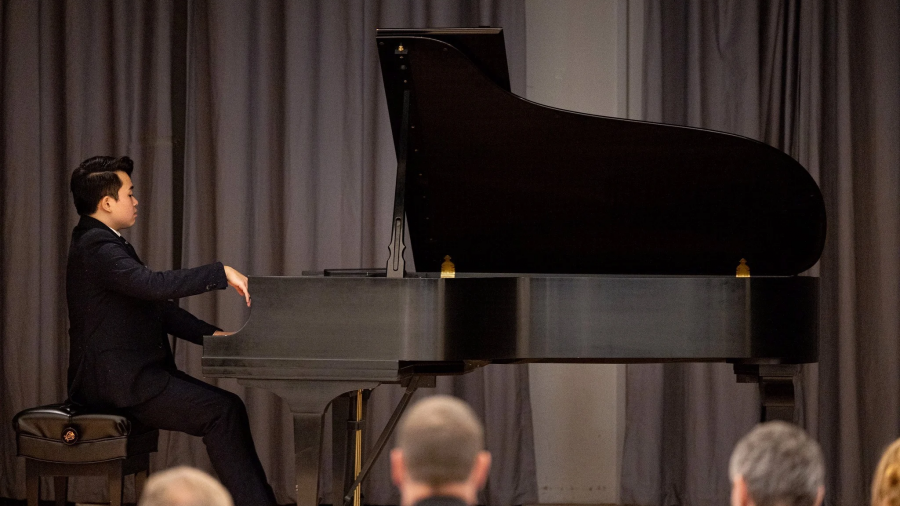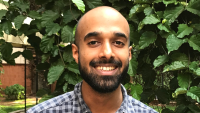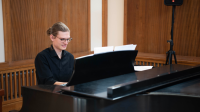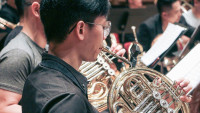
Mary Bevan was a Senior Member and a great supporter of Wolfson College.
Mary will be remembered through The Mary Bevan Recital, which her husband, the late Professor Hugh Bevan, Honorary Fellow, funded in her honour.
Programme:
Mark Ziying Zang – Piano (at 7.30pm)
Sonata-Idyll in G major, Op. 56 1937 Nikolai Medtner (1880-1951)
- Allegretto cantabile
- Allegro moderato e cantabile
The fourteenth and final of Medtner’s piano sonatas, the Sonata-Idyll represents a dramatic emotional shift from the complicated and dense music of the two preceding sonatas. A calm, pensive introductory movement gives way to a more standard sonata-allegro form, which, after an exciting coda, gradually disappears into the air.
Sonata in B minor 1853 Franz Liszt (1811-1886)
- Lento assai – Allegro energico -
- Andante sostenuto -
- Allegro energico – Andante sostenuto – Lento assai
Dedicated to Robert Schumann, and perhaps Liszt’s greatest work, the Sonata is a cornerstone of the Romantic piano repertoire. Revered by pianists and academics alike, this 30-minute piece proceeds without break, featuring just about everything, including extreme virtuosity, longing melodies, and formal ingenuity.
Patrick Pan – Piano (at approx 8.30pm)
Robert Schumann's Papillons and Davidsbündlertänze are two suites of short pieces that nominally depict scenes at a masquerade ball.
Papillons Butterflies, Op. 2 1831 Robert Schumann (1810-1856)
Papillons, a suite of 12 short movements, is more light-hearted and literal in its portrayal of dance—many of its pieces could actually be used to waltz—although the distinct character of each piece contributes to an underlying dramatic tension.
Davidsbündlertänze, Op. 6 1837 Robert Schumann (1810-1856)
Dances of the League of David
The drama intensifies in Davidsbündlertänze, which depicts Schumann's inner conflict between his passionate and exuberant side (which he nicknamed "Florestan") and his thoughtful other half ("Eusebius"). Despite their outward similarities, Papillons and Davidsbündlertänze represent different sorts of dance: the former consists of dances for the body, the latter dances for the soul.
About the performers:
Mark Ziying Zang
Mark began studying piano at the age of 4, before going on to study piano at the Purcell School of Music. There, he also began studies in composition and organ, which led him to an organ scholarship at Emmanuel College, Cambridge, where he completed his undergraduate studies in Music before beginning a Master’s degree in composition this academic year.
Patrick Pan
Wolfson’s Brian Moore Accompanist Scholar, Patrick Pan is studying towards a BA in Philosophy. He has a Master of Music in piano performance from the New England Conservatory and a BA in computer science from Harvard. Patrick was a recent finalist and prize-winner in the Cambridge University Music Society Concerto Competition.
Admission free. No need to book.
A retiring collection will be shared between Diabetes UK and Wolfson College Music Society.
There will be a drinks reception at the interval.



